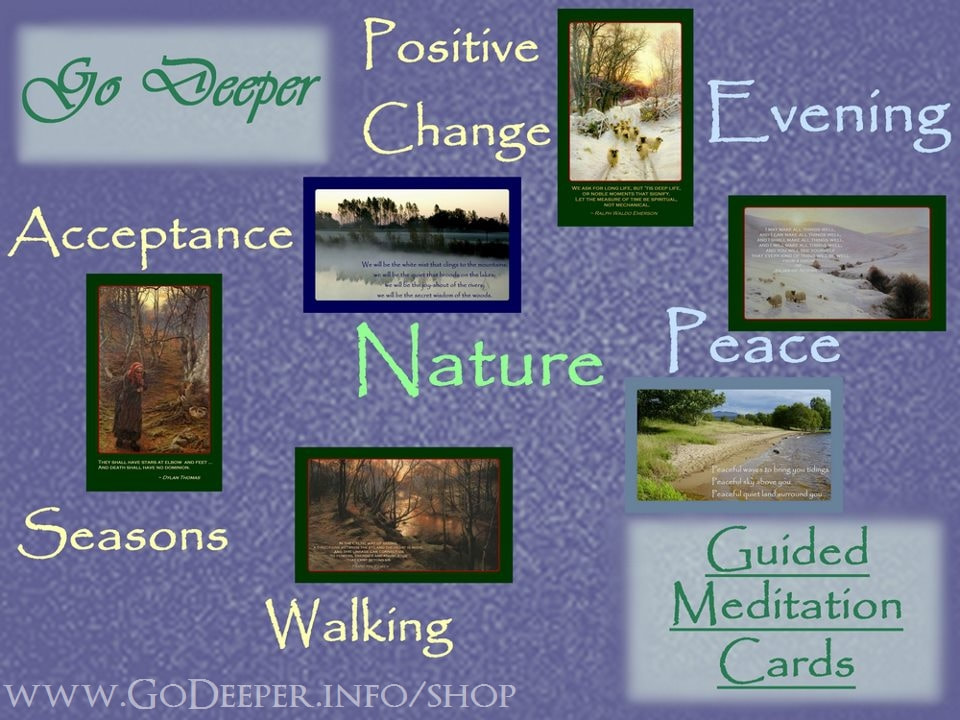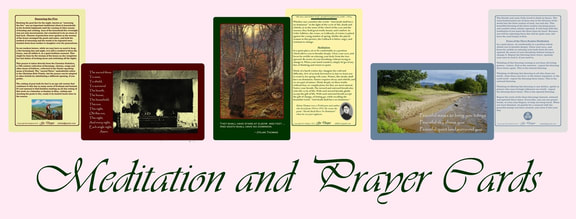What is meditation anyway? Do we need to be guided?
I never learned TM, but by the early 1980s I did take my first meditation class. It was an evening class at a local community college, taught by a lovely young woman, who assured us that there were many paths to the meditative state. We explored a number of different approaches, so that each person could find out what worked best for them. I love variety, and I'm so glad that this was my first experience with meditation. Over the years, I have not been a particularly consistent meditator, but I have never abandoned meditation altogether for very long, either.
Of course, meditation is such a broad concept, that several people can use the word and mean quite different things. Meditation might mean trying to empty your mind or to focus on one thing - such as an idea or something like a candle flame. It might mean deeply contemplating something, being mindful and aware from moment to moment, or repeating a mantra. It might even involve an activity like walking or singing. Then there is guided meditation.
Guided meditation
Books may also contain instructions for self-guided meditation. Sometimes, people like to record these for their own use by reading them aloud, but many of them are simple enough to read through and remember how to do, especially if you do them a few times in a row. I have learned some of my favourite meditations from books. Like many things, this may depend on your learning style, but I would say that it's good to have a few meditation techniques that you can draw on, so that you don't always need to rely on an audio device.
You may wonder how listening to someone talk can be a form of meditation at all. It sounds a bit too easy, like a gimmick. There isn't an easy answer to this. Many traditional meditation practices involve time spent sitting in silence, or perhaps chanting. These are very valid approaches, and useful to many people. They can create a great deal of inner peace, mental discipline and order. Of course, many of these ways of meditation are taught to newcomers through verbal guidance, until the student is ready to "fly solo." The more modern concept of incorporating guided imagery or visualisation can be a little "fluffy" or insubstantial at times, but it still offers many of the benefits of relaxation and mental focus that other forms of meditation do, and has an advantage of being themed to suit the needs of the moment.
But do all types of meditation benefit us equally? No, probably not. Or at least, the benefits will be of different kinds. However, quieting your mind and relaxing for a few minutes will have more benefits than you think, right off the bat. If you meditate frequently (not necessarily even for very long in a session) those benefits will really accrue, partly because you will get better at it, and partly because you will gain a little more control over your mind. Control which you can begin to apply when you need it - whether in stressful situations or to aid concentration and focus. Each meditation session will probably slow your heart rate and breathing, lower your blood pressure a little and have other good physical effects.
If all your meditation practice is based on the more traditional "quiet (or empty) mind" stuff, while the benefits may be immense, you may also miss out on some of the good things that guided imagery has to offer. In balance, if all you do is listen to a guided imagery MP3 every evening, you will also benefit - probably more or less depending on the quality of what you listen to. Hopefully you will also be learning to relax and stay focused, plus whatever other content your choices of listening are offering you, but if there is no period of quiet built in to the meditation, you may not be gaining much skill to meditate by yourself. If you have tried one kind of meditation and it hasn't worked, rather than give up, try something different.
If a quiet, more traditional, style of meditation hasn't worked for you in the past, try something that is a little more active - mindfullness, walking meditation or yoga might work better for you. If learning from a book didn't work, maybe going to a class will. If you don't want to spend money or leave the house - there's loads of stuff on YouTube. If you don't like the first guided meditation you listen to, shop around! There are voices you will like the sound of, and some that may grate on you, just as there will be content that appeals to you and some that doesn't. Just begin somewhere!
You can do this!
I don't claim to be an expert on meditation, but I am always happy to help people if I can, so if you have a question about this topic, don't be shy about leaving a comment or contacting me.



 RSS Feed
RSS Feed




